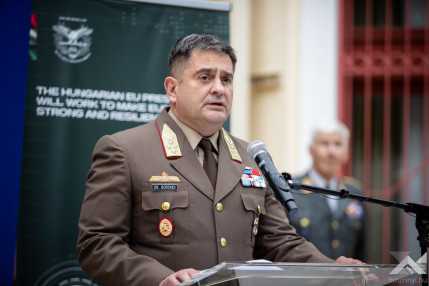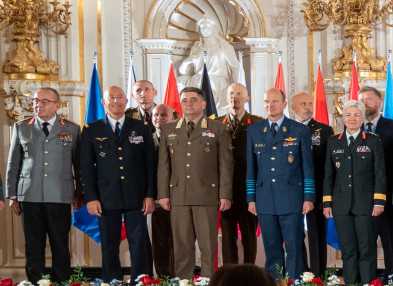Hungary continues not to transport weapons to Ukraine
Text: defence.hu/MTI | Photo: HDF GS, Gábor Kormány’s archive photo | 15:57 September 16, 2024As it declared earlier, Hungary continues not to transport weapons to Ukraine – stated General Dr. Gábor Böröndi, Chief of HDF General Staff on Saturday evening, following a conference of the Military Committee (MC), NATO’s highest ranking military authority held on 13-14 September.

Speaking after the event organized in Prague, the general said that the meeting of NATO chiefs of defence had still been centered on the Russo-Ukrainian War, as this is “the most important issue for NATO today”.
He told the press that the participants of the conference had reviewed current trends and actions, and in this context, also discussed NATO’s vigilance activity, including the preparation, training and cooperation of battle groups set up in the member states, as well as the implementation of previously agreed defence plans.
Gábor Böröndi also said that speaking at the meeting, he had stated that although Hungary supplies non-lethal weapons to Ukraine, adhering to its prior stance, it continues not to transport lethal weapons, at the same time, together with Hungarian, Croatian, Turkish and Italian troops, it carries on with the preparation and training of the enhanced vigilance activity battle group set up in Hungary within the framework of NATO membership.

In connection with the atmosphere of the meeting, he said that in an earlier period of the Russo-Ukrainian War, certain member states’ expectations about the end state had been very positive, but today “it seems that this optimism is not so high”.
That said, he went on saying that future tendencies are an increasingly recurrent topic of the MC meetings, among them whether the Russo-Ukrainian conflict would later continue with peace or with armistice, and also how NATO is preparing itself for the challenges of the 21st century, and how national force development plans can be harmonized with NATO’s plans.
Dr. Gábor Böröndi noted that on the margins of the meeting, he conducted a separate professional discussion with General Christopher G. Cavoli, Supreme Allied Commander Europe (SACEUR) and with the representatives of France and Croatia. For example, he and the Croatian representative reviewed the future of the Székesfehérvár-based Headquarters Multinational Division Centre (HQ MND-C).